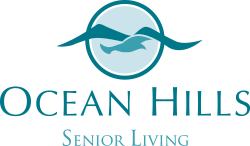It’s safe to say that everyone already knows the massive impact of the foods they eat on their heart’s health. Of course, other factors can also increase one’s risk of having heart disease—there’s genetics, obesity, stress, smoking, and an inactive lifestyle.
But according to the CDC, poor diet remains to be the top contender in endangering a senior’s heart health. Furthermore, it is said to increase your risk of dying if you already have any kind of heart disease.
Some of the most notorious eating practices that can immediately put your heart at risk include the following:
- Consuming trans fats coming from deep-fried foods.
- Eating foods or food products high in saturated fats, salt, sugar, and refined carbs.
- Processed meat and cheese.
- High-fat meat, dairy products, and other food.
- Lard and butter
Fortunately, there is an easy way out of a future filled with heart attack scares and emergency rooms—and that is by practicing a heart-healthy diet in your assisted living in Oceanside, CA.
5 Heart-Healthy Diets for Seniors
It’s essential to know the different kinds of foods that can promote heart health, such as salmon, oatmeal, berries, leafy vegetables, and whole grains. But it is equally essential to follow a specific diet plan if you want to protect your cardiovascular system.
So, here are five senior-friendly diets approved by health experts that can help keep your heart’s health in its best shape.
1. The Meditteranean Diet
The Meditteranean diet currently receives a lot of hype due to recent studies showing that it’s the best diet plan to keep the aging body and mind healthy. Additionally, research also suggested that seniors over 65 can reduce their mortality rate by 25% by following this diet started by the Greeks.
Originated in the 1960s, the Meditteranean diet focuses on meals high in fruits, vegetables, whole grains, legumes, white meat, and fish. It also encourages moderate consumption of poultry and dairy products low in fat and red wine.
Furthermore, this type of diet limits you from eating processed foods, red meat, carbonated drinks, and pastries.
Following the Meditteranean diet allows seniors to prevent heart diseases, breast cancer, and cognitive disorders over time.
2. DASH Diet
Up next is the DASH (Dietary Approaches to Stop Hypertension) diet, which is backed and promoted by the National Institute of Health.
This eating plan increases your dietary intake of essential nutrients that help control blood pressure by increasing the body’s calcium, magnesium, and potassium levels. Additionally, it limits your body’s sodium and saturated fat intake to prevent high blood pressure, which in turn helps keep your heart healthy.
Like the Meditteranean diet, the DASH diet does not have stringent eating rules to follow. However, it still encourages seniors to eat veggies, fruits, white meat, nuts, seeds, and whole grains while limiting fatty dairy, refined grains, and added sugars and sodium. Some ways to reduce your sodium consumption include:
- Using herbs and spices instead of salt and other unhealthy flavorings.
- Choosing fresh or frozen fruits and vegetables instead of preserved ones.
- Limiting processed foods, snacks, and fast foods.
- Buying fresh or frozen lean-cut and skinless meat.
- Opting for less to no salt in cooking dishes.

3. The Therapeutic Lifestyle Changes (TLC) Diet
Another diet promoted by the NIH and AHA, the TLC diet, aims to reduce your body’s bad cholesterol (LDL) levels while increasing the good (HDL) one. This then promotes a healthy and strong heart by reducing your chances of developing hypertension, diabetes, and other diseases linked to heart disorders.
The unique thing about the TLC diet is that it does not only encourage proper diet but also healthy lifestyle habits. This includes exercising for at least 30 minutes each day on top of eating a healthy diet to keep your heart and weight healthy.
Here are some TLC-approved food recommendations if you plan to follow this diet in your assisted living in Oceanside, CA.
- A minimum of 5 ounces a day of skinless and lean meat or fish.
- Upping your fiber intake by eating fruits, veggies, oat bran, beans, nuts, and seeds.
- Limit low-fat dairy products to at least two to three servings per day.
- Stock up your body with whole grains, such as bread, pasta, and rice.
Focus on cooking your own meals by baking, grilling, broiling, or steaming them to get the most nutrients and avoid trans fat.
4. Ornish Diet
The Ornish diet not only promises to keep the heart healthy by preventing cardiovascular diseases. This science-backed eating plan can also reverse your chronic heart disease on top of improving your health.
This diet aims to lower your fat consumption by promoting low-fat and plant-based meals. So, this means that you need to increase your consumption of the following:
- Green, leafy vegetables and fruits
- Legumes and whole grains
- Soy products and limited non-fat dairy
- Egg whites
- Limited healthy fats from fatty fish (at least 10% of your total daily calories should come from fats).
Following this strict diet strategy can help seniors lose excess weight and fat, reverse aging cells, and prevent chronic diseases.
However, the Ornish diet might not be a good option for other seniors since it promotes a very low fat intake. Additionally, limiting your healthy fat and meat intake makes you vulnerable to micronutrient deficiencies.
5. Flexitarian Diet
To prevent nutrient deficiencies, you can also opt for a flexible vegetarian or flexitarian diet that prioritizes plant-based meals but does not restrict you from consuming your much-needed meat, fish, and other animal products.
This type of diet encourages you to get your daily protein needs from plant foods, such as tofu, quinoa, oats, chia seeds, and whole-grain bread.
Furthermore, there are no strict rules about eating animal products, just that you need to stick with the healthy ones, like lean meat, fatty fish, and non or low-fat dairy products.
The plant-rich diet followed here allows seniors to escape fatty and processed foods, keeping their heart and overall health intact.
It’s okay to follow any of the diets mentioned above while residing in your assisted living in Oceanside, CA. Just make sure to inform your caregivers and doctors about it.

